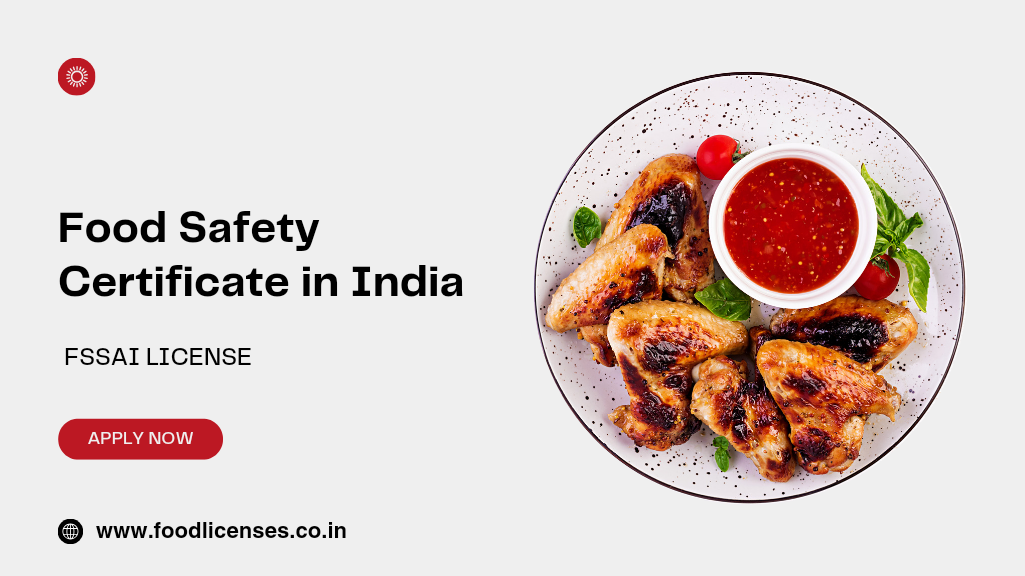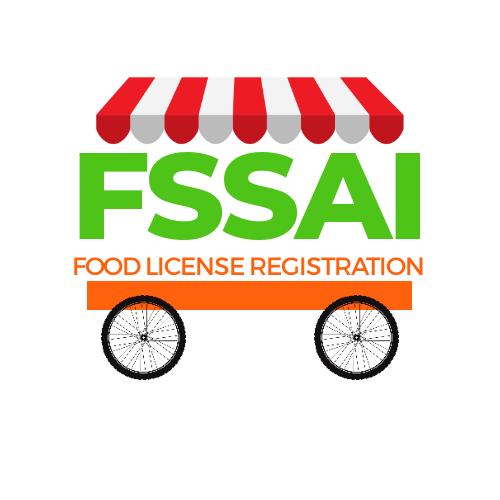Navigating the Path to Food Safety Certification in India: A Comprehensive Guide
Introduction
In a world that prioritizes health and well-being, obtaining a food safety certificate is paramount for businesses in the food industry. This comprehensive guide is designed to provide insights, FAQs, and a step-by-step walkthrough to help businesses secure their food safety certification in India.

1. Understanding Food Safety Certification
1.1 Significance of Food Safety Certification
Explore the importance of food safety certification for businesses and consumers.
1.2 Regulatory Bodies in India
Understand the key regulatory bodies overseeing food safety standards in India.
2. Types of Food Safety Certifications in India
2.1 FSSAI License
Delve into the process and requirements for obtaining the Food Safety and Standards Authority of India (FSSAI) license.
2.2 ISO 22000 Certification
Learn about the International Organization for Standardization (ISO) 22000 certification and its relevance to food safety.
3. Steps to Obtain Food Safety Certification
3.1 Assess Your Business
Evaluate your business operations and identify the type of food safety certification required.
3.2 FSSAI License Application Process
Navigate through the step-by-step process of applying for an FSSAI license.
3.3 ISO 22000 Certification Process
Understand the stages involved in obtaining ISO 22000 certification for your food business.
3.4 Documentation Requirements
Gather the necessary documents needed for a successful certification application.
3.5 Inspection and Audit
Prepare for the inspection and audit processes conducted by certification authorities.
4. Frequently Asked Questions (FAQs) About Food Safety Certification
FAQ 1: Why Is Food Safety Certification Important?
Discover the critical role of food safety certification in ensuring the quality and safety of food products.
FAQ 2: How Long Does It Take to Obtain an FSSAI License?
The processing time for an FSSAI license can vary but is typically within 30 days.
FAQ 3: Can Small Businesses Obtain Food Safety Certification?
Yes, businesses of all sizes can and should obtain food safety certification to meet regulatory requirements and build consumer trust.
FAQ 4: What Is the Validity Period of FSSAI License?
The validity of an FSSAI license depends on the type of license and ranges from 1 to 5 years.
FAQ 5: Is ISO 22000 Certification Mandatory?
While not mandatory, ISO 22000 certification is internationally recognized and enhances the credibility of a food business.
FAQ 6: What Are the Penalties for Non-Compliance?
Non-compliance with food safety regulations can result in penalties, fines, or even business closure.
FAQ 7: Can I Upgrade from FSSAI to ISO 22000 Certification?
Yes, businesses can upgrade from an FSSAI license to ISO 22000 certification for a higher level of food safety management.
FAQ 8: Are Consultants Recommended for Certification?
While not mandatory, hiring consultants can streamline the certification process and ensure compliance with all requirements.
FAQ 9: Can I Operate Without Food Safety Certification?
Operating without food safety certification can lead to legal consequences, damage reputation, and risk consumer health.
FAQ 10: How Often Should I Renew My FSSAI License?
FSSAI licenses should be renewed before the expiry date, with timelines varying based on the type of license.
5. Tips for a Successful Food Safety Certification Journey
Tip 1: Start Early Preparation
Initiate the certification process well in advance to ensure ample time for completion.
Tip 2: Thoroughly Understand Requirements
Have a clear understanding of the specific requirements for the chosen certification to avoid errors.
Tip 3: Keep Documentation Organized
Maintain a well-organized set of documents, making the certification process smoother.
Tip 4: Implement Best Practices
Incorporate food safety best practices into daily operations to align with certification standards.
Tip 5: Train Staff on Food Safety
Ensure that staff members are adequately trained on food safety protocols and practices.
Tip 6: Regularly Update Processes
Stay informed about updates in food safety regulations and update processes accordingly.
Tip 7: Conduct Mock Audits
Conduct internal audits to identify and rectify any potential issues before the official certification audit.
Tip 8: Seek Professional Guidance
Consider hiring professionals or consultants with expertise in food safety for guidance and support.
Tip 9: Build a Food Safety Culture
Cultivate a culture of food safety within your organization to prioritize and maintain high standards.
Tip 10: Stay Committed to Continuous Improvement
Commit to continuous improvement by regularly reviewing and enhancing your food safety management system.
Conclusion
Obtaining food safety certification is not just a regulatory requirement; it’s a commitment to ensuring the well-being of consumers and the success of your food business. By following the steps outlined, understanding the FAQs, and implementing the provided tips, businesses can embark on a successful journey towards obtaining and maintaining their food safety certification in India.

